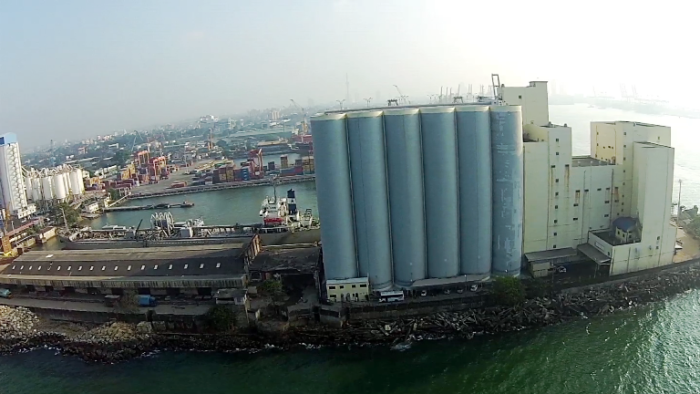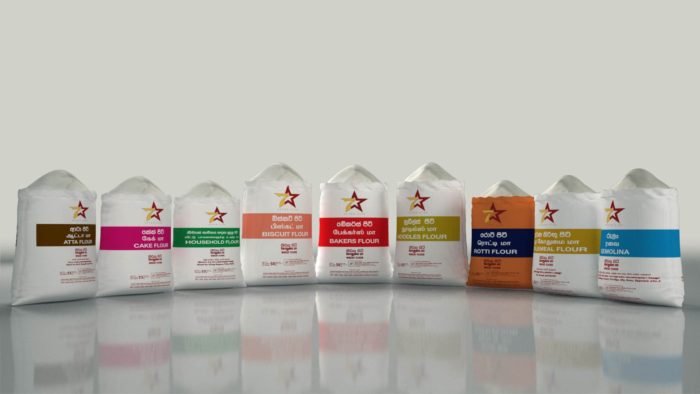Behind the success of 7 Star Flour – a window into Serendib Flour Mills’ world-class milling operation
 Inquiry
Inquiry 

Since Serendib Flour Mills (SFML) commenced commercial operations in 2008, the company has remained dedicated to nourishing the nation and has been a leading manufacturer of high quality wheat flour products. A great deal of skill, effort, time, knowledge and technical capabilities go into ensuring that the company runs an efficient and seamless operation and this gamut of sophisticated milling and production processes is what keeps a steady supply of 7 Star Flour in homes, eateries, cafes, restaurants supermarkets and industrial storage units across the country. The processes used at SFML’s milling facility, also ensure that each product variant delivers consistent levels of quality, freshness, taste and nutrition.
SFML’s flagship brand, 7 Star Flour is available in a diverse range of varieties to suit the dietary and lifestyle needs of the nation. The finest raw materials, the latest technology, industry best standards and stringent quality controls are all implemented by the company to deliver a world-class product range to the local market.
The journey of wheat grains from silos to the factory floor: SFML sources wheat from Canada, Australia and the USA which are revered as the best wheat producing countries in the world. The shipments of wheat are pre-cleaned when they arrive at the facility and are put in storage in 18 silos that each have the capacity to hold (insert amount) tonnes of wheat. A preparation time of 24 hours is required prior to milling. The wheat varieties are blended to achieve consistency and then initial cleaning commences to remove large stones, straw and impurities. The wheat is then tempered with conditioned water – this is a crucial step in the production process and the water toughens the bran and prevents it from shattering during milling.
All wheat varieties are then brought to the same moisture level and are soaked for up to 24 hours, thereafter another round of cleaning is done to remove smaller impurities and the wheat is weighed and taken to the factory floor.
A complex and automated milling process: The milling process which commences thereafter is considerably complex. Explaining it in more detail Mark Healing – Chief Technical Officer, Serendib Flour Mills says: “Once the wheat grains have been tempered with water, they gently break open without being damaged and fluted roller mills help to remove the flour in large particles. The mill is fully-automated and each part of the process is managed from our central control room. Once the large particles of flour have been extracted, we begin a gradual reduction process which involves grinding and sieving the flour into more refined particles. The sieving takes place in 48 large industrial sieves known as plan sifters. The refining process changes based on the type of flour that we are milling; Wholemeal Flour and Atta Flour for instance undergo less refinement.” Mark added: “We then collect batches of flour and blend them together before sending them to our on-site laboratory for testing. The blending process takes place in over 90 machines and the sheer scale, magnitude and technical complexity required for the operation is substantial. If the samples are approved then the flour is stored in silos and sent for packaging. One tonne of wheat grains usually yield 75% of flour and the bran and wheat germ which are left over are used to make animal feed products. Based on customer requirements, the flour is packaged in 1 kg, 25 kg or 50 kg formats and prepared for local and global distribution.”
A commitment to quality and environmentally-friendly operations: The very latest Buhler Swiss Technology is used at the mill and it requires zero human contact. Stringent control measures are put in place to improve the overall operations and productivity levels and internal and external audits are conducted regularly to ensure that SFML is adhering to global standards of excellence and quality assurance. The company also uses an Integrated Management System to streamline operations and has all the necessary ISO certifications including Quality Management System ISO 9001, Food Safety Management System ISO 22000 and Environmental Management System ISO 14001. The company is also taking measures to reduce all greenhouse gas emissions as well as water and energy consumption and will be implementing a carbon footprint reduction programme in the near future across its operations.
How SFML’s processes help to build trust: The company’s 7 Star brand of flour has been nourishing the nation for seven years. SFML’s stringent processes and best practises enable each product to embody the 7 Star qualities of purity, innovation, quality, freshness, expertise, service and trust. Commenting on the company’s brand promise of quality, Kevin O’Leary, Chief Executive Officer, Serendib Flour Mills said: “Due to the protocols and diverse array of processes and quality controls that are all simultaneously run at our facility, we are able to deliver quality and consistency with every single batch of flour that we produce. It is this promise that has helped the 7 Star range become a trusted staple and essential ingredient for consumers, retailers and industrial organizations across the country. Our Bakers’ Flour, Household Flour, Rotti Flour, Biscuit Flour, Wholemeal Flour, Noodle Flour, Atta Flour, Cake Flour and Semolina all offer the same promise of quality, these products are also versatile, purpose-orientated, affordable and certain varieties such as Fortified Flour are enriched with essential vitamins and minerals. Whilst Serendib Flour Mills takes great pride in our efforts to nourish the nation, an immense amount of work, dedication and countless processes go into running a truly world-class operation.”
